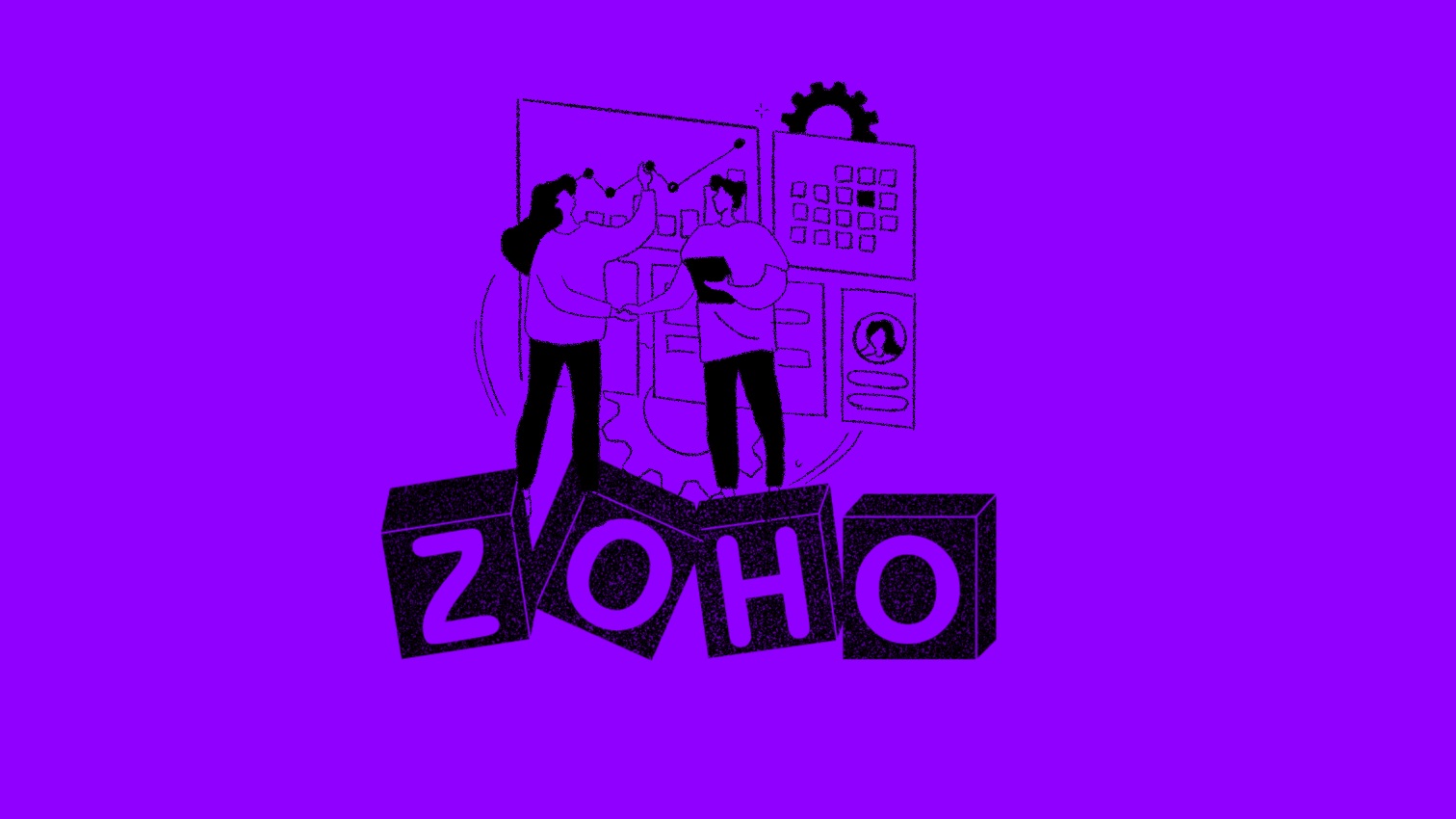Satya Nadella once said, "Longevity in business is about being able to reinvent yourself or invent the future."
Zoho's quarter-of-a-century run is a perfect example of how reinvention leads to longevity.
From their humble beginnings in Chennai as a network management company 25 years ago to becoming one of India's largest SaaS companies, Zoho's journey has been nothing less than splendid.
But, Zoho did this by setting its own goals and carving its own path:
- Back in the late 90s, when other companies were raising millions, Zoho decided to stay bootstrapped.
- When loss-making companies chased the IPO dream, Zoho choose the freedom of being a private company.
- They even directly competed with Google, Microsoft & Salesforce and went through multiple reinventions to carve out their own niche to thrive!
Today, Zoho makes INR 5230 crores in revenue and a profit of INR 1918 crores, all under the guidance of Sridhar Vembu!
Zoho's journey is a MASTERCLASS on building a startup, hiring, marketing and how you can buildd your dream life! So, let's dig in 😎
Sridhar Vembu's early days & the inception of AdventNet
Zoho's journey is intrinsically linked with Sridhar Vembu's journey. So, let's start there.
Sridhar Vembu (now a billionaire) was born in a small village called Thanjavur in Tamil Nadu. An extremely bright student, Vembu went on to study Electrical Engineering at IIT Madras and completed his PhD from Princeton University.
With his IIT & Ivy League tag and a "Dr" in front of his name, Vembu started working at Qualcomm as a wireless engineer in California.
At the same time, in early 1995, 2 separate businesses were being built ~8500 miles away.
Sridhar Vembu's brothers Kumar and Sekar Vembu were building a bootstrapped operation in their Chennai apartment. While Zoho's co-founder, Tony Thomas, was working on a highly technical product - an SNMP API protocol in Java - all the way in New Jersey.
Sridhar connected Tony with his brothers and in late 1995 they merged their operations and started working together. The SNMP protocol software was the core product that came out of this collaboration.
Till this point, Vembu was mostly playing a supporting character in the story. He left Qualcomm in 1996 to move to silicon valley and was completely relying on his savings.
He tried his hand at building hardware but failed miserably. After blowing up all his savings, he started doing some contractual programming work for a couple of companies.
Baby Zoho, then called Advent Network Management (ANM), had not yet taken off and Vembu was barely surviving through his contractual gigs. It was fate that both parties would meet!
From a simple software to a world-class SaaS product!
Engineer learns to sell! 💸
Meanwhile, Tony was looking for more opportunities to market the SNMP protocol software.
He arrived in silicon valley to sell this software at a Las Vegas trade show Networld+Interlop and asked Sridhar to join him.
Neither Tony nor Vembu knew anything about sales, so Vembu decided to give it a go. He printed up a bunch of "VP of Marketing" business cards and arrived at the convention.
Vembu's rustic sales skills literally meant a long pitch about the technicalities of the software while he forgot to ask the buyer for money. But, fortunately for them, they made some sales!
That's how Vembu became AdventNet's first salesperson!
Even today when Sridhar Vembu is asked about the one skill he'd like to go back and learn more about, he mentions sales and marketing.
Learning these 2 disciplines for an engineer is naturally difficult. But, it's very telling that the frontman of Zoho, a Princeton Ph.D., started his role by selling the product when he knew nothing about sales.
Lessons:
- Make your first $ without worrying about the process ⇒ Do everything you can to close the first sale.
As a startup founder "Shamelessness" is a big superpower.
First goal: "We should not go out of business"
Soon after, at the end of 1997, the company crossed $350K in sales. But, they didn't pay themselves yet!
They put all the money back into the company to buildd their IoT platform, WebNMS. They were still working as 2 separate wings. The sales team in the US and the R&D company in India.
During this period, they were growing very quickly. In 1998, they crossed $1 million in revenue and by 2000, they reached $10 million in revenue. Vembu also became the CEO in 2000.
There were 2 main strategies that mostly set the ground and guided the first 5-7 years.
- Choose a niche market
AdventNet was an up-and-coming bootstrapped software company during a time when giants like Google and Salesforce were entering the scene. These giants had truckloads of cash backing them.
So, if Zoho were to compete with them and continue their bootstrapped ways, they had to choose a niche market that's large enough to allow the founders to support themselves.
- The first 5 years are all about survival!
More often than not, companies die because they run out of money. So, during the first 5 years, Vembu had just one thought in his mind — "How do we make sure we don't go out of business?"
So, every penny made was invested in paying their employees and building their business further, till they had a $10M business!
Lessons:
- The first revenue goal of your startup is not a million dollars - but to earn enough to NOT quit.
- Your startup doesn't need to fail fast. It can succeed slow.
From one product to the next
This core principle of focusing on cash flow and profitability and building a sustainable business, helped them weather the 2000s dot com bubble. Being debt-free was a blessing for Zoho and since then they have followed that route.
But, during this time a different problem had come up. The WebNMS product had reached market saturation at the $10M mark. And, Vembu knew it was time to pivot.
Although things were different this time!
- They had learned to buildd products
- They knew how to get customers
- Most importantly, they knew how to sell
So, they started building their next product called, Manage Engine, in 2001-2002. It was essentially a range of digital tools that can be used to manage a business better.
Finally building Zoho!
In 2005, AdventNet added another wing alongside Manage Engine and WebNMS - Zoho Corp.
At its core, Zoho loves R&D. So as they started getting better at building products, they shifted to the online business, cloud and productivity space.
They launched Zoho Writer and then Zoho Sheets and Zoho Docs, but when Google entered the space with Google Docs and Sheets, they decided to shift their focus to CRM.
Vembu felt it was better to compete with Salesforce than with Google! 😁
But, the bet paid off. After many reinventions, Zoho now provides a complete suite of enterprise software with 50+ products.
Founders often worry that Google or Amazon will buildd a replica of their product and put them out of business.
But, in reality, rather than worrying about Google, you should actually worry if real customers will even care about your product.
Encounter with VCs
The year 2000 was a chaotic time for Zoho.
Under the leadership of CEO Vembu, they were trying to reinvent themselves. But, while there was an impending recession on the way, Zoho was debt free and sitting on a $10M revenue-generating machine. So, they could surely sustain themselves.
During this time, VCs approached them with funding. Now, this is a funny story! The VC in question offered some x amount of money to Zoho. But, according to the term sheet, the founders had to commit to a 7-year EXIT or Liquidity.
That's a pretty standard deal in the VC world. But, Vembu was adamant. He declared that he was essentially married to Zoho and was not ready to give in the reigns or pursue an exit in only 7 years.
He ditched the offer and decided to become their own VC!
Meaning, that every preceding wing in Zoho would fund the next venture. So,
- WebNMS funded MangeEngine
- ManageEngine funded ZohoCorp
- And, now ZohoCorp's revenue funds all its new products!
As their revenue kept increasing, they could reach a step higher and target more ambitious products.
How is Zoho doing and the road ahead!
The story of Zoho's long run reveals Sridhar Vembu's incredible foresight. The man could see the future in his crystal orb and he built a billion-dollar business using it!
Here are some examples of Vembu's foresight!
- Building an army of products!
Vembu knew that as his competitors grow further into public companies, they'll have all the resources to acquire products with sizeable market share to add to their business.
As a sworn private company, Zoho was at a disadvantage. So, very early, they invested all their energy into innovation. Today, they have their own Spreadsheet software, CRM, Online Meeting software, Docs, Sheets, HR, and more!
- Training Centers and Hiring
Zoho's hiring approach is very different from other startups. Their training program picks talented students, educates them, and gives them a good opportunity.
So, when these students join Zoho, they are genuinely passionate about their work. Which results in higher retention and more innovation.
Lesson ➝ As a startup scales, the biggest hiring problem isn't finding talented folks, but those who actually CARE about what you are building.
Most parts of Zoho's growth were driven by Sridhar Vembu's passion. Vembu is very much a problem solver and innovator at heart. So, he is no longer concerned about making more money but is looking for the next problem to adopt!
Finally, if you were to have only ONE takeaway from this article, remember this:
Startup battles are regularly won by people who can run longer than those who can run faster.
All startups don't have to become unicorns. Buildd something that can give you the lifestyle you desire and the happiness you seek.





